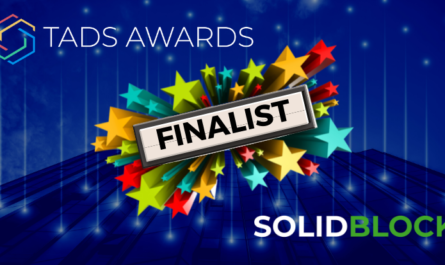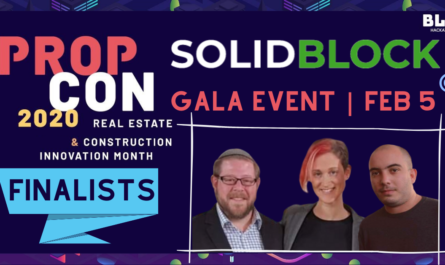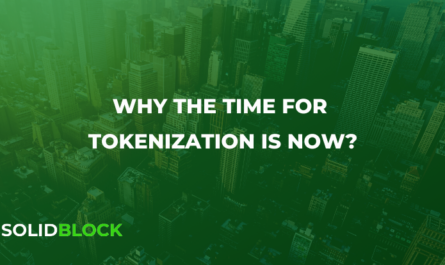
The benefits of tokenizing affordable housing
Many of us have spent the better part of 2020 at home. And for those living in places that lack privacy, that are too small, or downright dangerous, it’s been a nightmare. Few past crises have highlighted the importance of safe, affordable housing the way COVID-19 has.
Yet for real estate developers, there’s no incentive to create affordable housing. Luxury housing is good for business – even if it’s terrible for the little guy, terrible for neighborhoods and communities, terrible for urban centers, and often terrible for minorities and those who are socioeconomically disadvantaged.
But there is a better way, a way to revitalize inner cities and bring communities together.
Tokenization is an alternative process which has been used successfully in a number of countries and jurisdictions to fund innovative real estate development projects. It lets local community members invest in affordable developments. By turning ordinary people into stakeholders, it builds local pride and guarantees the success of local projects.
It’s not hard to understand how it works. The process of tokenization breaks up a real estate asset into many smaller fractional parts. This creates a more affordable investment.
The biggest obstacle to traditional real estate investment is simply that it takes a whole lot of money – often the cost of an entire property. Whereas these fractional parts, or “security tokens,” cost a lot less.
Buying, selling, and trading of tokens are all done through blockchain technology. Blockchain, which has been used worldwide for over a decade now, stores multiple copies of records, a technique known as a “distributed ledger.” These records are locked so nobody can read them but their owners, and records cannot be added, deleted, or changed without permission.
Security tokens are initially released through an STO, the equivalent of an IPO for shares in a public company. And just like traditional shares, security tokens may later increase in value thanks to secondary market trading through alternative trading systems (ATSs) or even traditional stock exchanges.
When an individual invests in an STO, they receive proof of ownership in the form of a digital file. They also automatically receive regular dividends and interest, according to terms outlined when they first invested. And unlike traditional real estate, they may also be able to trade their holdings for a higher value, giving them yet another way to make money.
Benefits to affordable housing developers:
- Rapid access to liquid funding from a broad local investment pool
- Innovative funding model generates PR & organic excitement
- Excited and dynamic grassroots community support helping raise equity
Benefits to residents and other local stakeholders:
- Confidence investing in a concrete, real-world asset
- Returns from ongoing dividends and future increase in value with secondary trading
- Satisfaction from funding worthwhile community-based projects and building local pride
Unlike traditional real estate, where investments can be locked in for years, the potential liquidity of tokenized investment may make it easier for smaller investors to get involved.
Finally, even in cases where traditional institutional funding isn’t available, due to a lack of confidence in the project, or a lack of federal backing funds for long-term affordable housing, a security token offering (STO) can be a great way to raise the same funds more quickly and easily, and at a fraction of the cost.
SolidBlock led the way in 2018, helping raise $18M towards the world’s first successful commercial real estate tokenization for the Aspen St. Regis Resort, in Colorado. And today, security tokens show the greatest promise to…
- Lower the investment threshold, opening development to local stakeholders
- Create dividends and money-making potential even for small investors
- Offer potential liquidity to investors so their money isn’t locked in
- Get essential housing projects built with less red tape and at lower cost
- Boost local pride and ensure the success of threatened neighborhoods
Initially, raising funds this way, the majority of funding will come from accredited investors. That’s because of the Reg D 506c regulatory structure required by law. So investment during the STO will be open to organizations and high net worth individuals who seek to give back to the communities they wish to support. It is also possible with current regulation to use crowdfunding platforms to involve lower-level crowdfunding investors. Currently, this level of investment is limited to $1.07M, although change has been approved raising this limit to $5M. Finally, with the SEC currently re-examining the definition of accredited investor, these offerings will likely open up and be more widely available. It is very likely that in the future, we’ll be able to offer STO-phase investment with far fewer limitations.
But in the meantime, things get really interesting for ordinary people and grassroots investors during the secondary trading stage. At this stage, with investment on various freely-accessible trading marketplaces and exchanges, retail investors will be able to get involved!
Blockchain-based real estate security tokens have already been rolled out in England, California, and many other locations. But the vast majority of these are commercial developments. Those which are residential usually focus on luxury housing, rather than the basic needs of ordinary citizens.
When it comes to creating affordable housing, the main lesson of COVID-19 is that we should have done this years ago. And we can’t afford to wait for the next crisis. In a year dedicated to sheltering in place, we need to create homes that truly are shelters. Security tokens are one way to create safe, welcoming, and affordable homes for us all.
To find out more about how SolidBlock’s winning tokenization model can help you get started investing or raising funds for your real estate project, get in touch.
Fee free to follow the SolidBlock page for more updates bit.ly/linkedin_sb.

 by
by 

